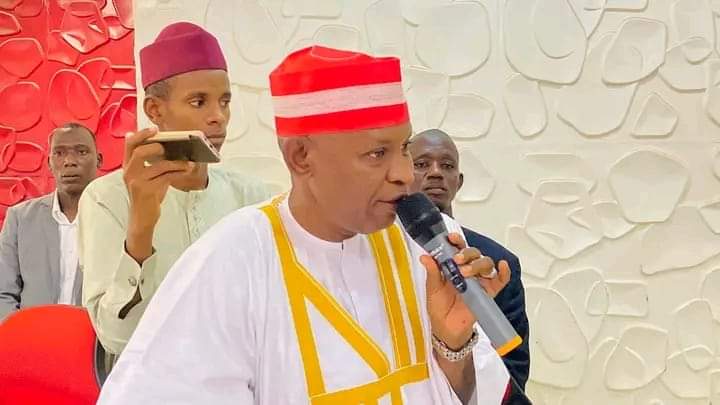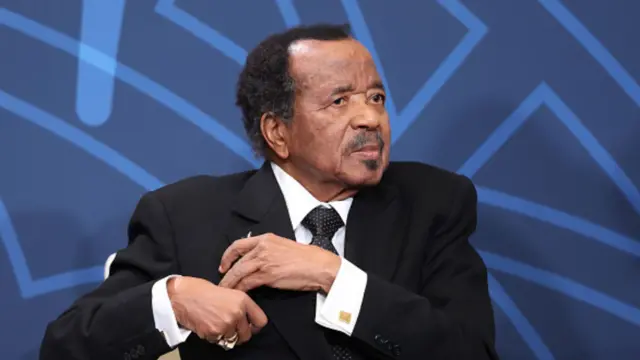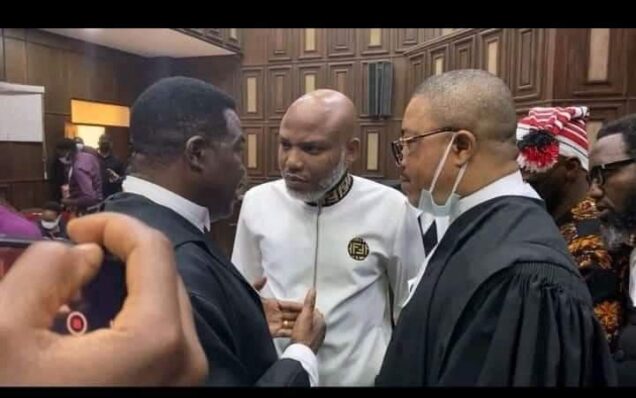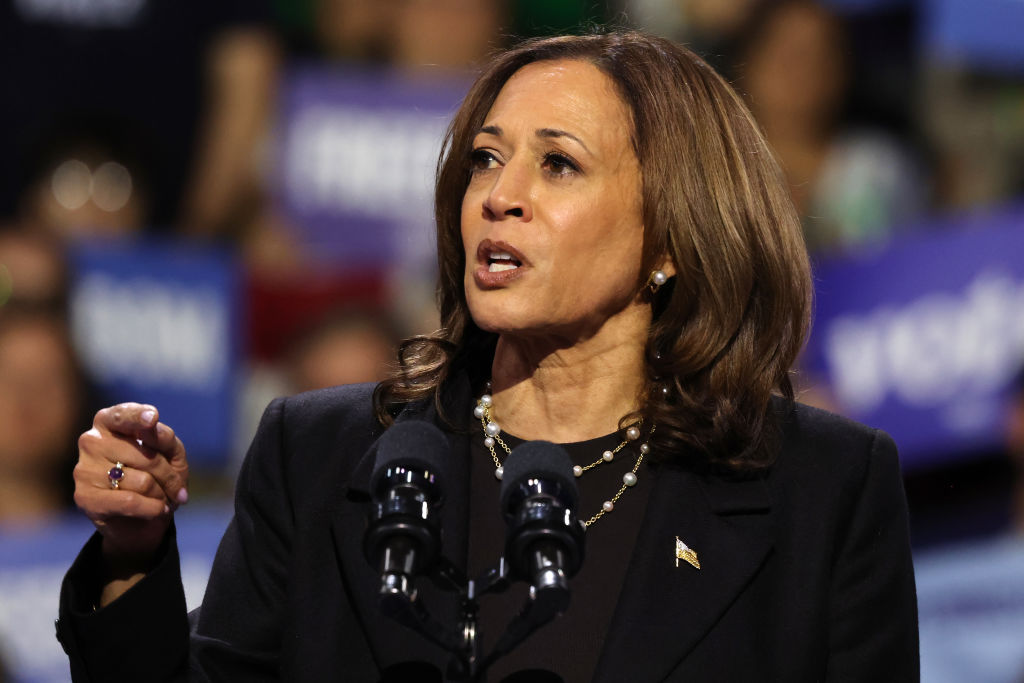Headlines
Kano Gov Approves Appointment of Three Second Class Emirs

The Kano State Governor, Abba Yusuf, has approved the appointment of three second-class emirs, according to an announcement by the Director General of Press to the Governor, Sanusi Bature.
They are: Alhaji Muhammad Mahraz Karaye, Emir of Karaye, Alhaji Muhammad Isa Umar, Emir of Rano, and Alhaji Aliyu Ibrahim Abdulkadir Gaya, Emir of Gaya.
The appointments that take effect immediately will see the new emirates serving as second with Kano as first-class emirate.
Yusuf named the newly appointed Alhaji Muhammad Karaye as the Emir of Karaye. He was the District Head of Rogo before his latest appointment.
Alhaji Muhammad Umar was named the Emir of Rano. He was the District Head of Bunkure before the latest appointment.
The governor also named Alhaji Aliyu Abdulkadir Gaya as the Emir of Gaya. He was the emir of the defunct Gaya emirate, who was dethroned among others recently.
The development follows the signing of the Kano State Emirate Council Establishment Bill 2024 into law by the governor on Tuesday.
The legislation, passed by the State House of Assembly, aims to bridge the gap between the grassroots and the government while sustaining the rich cultural values and norms of the people.
The new law establishes second-class Emirate Councils in Rano, Gaya, and Karaye, each responsible for specific local government areas.
Governor Yusuf said, “The Rano Emirate consists of Rano, Kibiya, and Bunkure Local Government Areas. Gaya Emirate consists of Gaya, Albasu, and Ajingi Local Government Areas while Karaye Emirate consists of Karaye and Rogo Local Government Areas.”
According to the governor, these councils will have powers to advise the Emir of Kano on matters related to the maintenance of public order and boundary disputes within their jurisdictions.
Speaking after the signing ceremony, the governor emphasised the law’s importance. “This law is vital in sustaining the rich cultural values and norms of our people. It will also bridge the gap between the grassroots and the government,” he said.
The existing Kano Emirate Council, headed by a first-class Emir as Chairman, will be supported by these second-class Emirate Councils.
The jurisdiction of the second-class emirates will be limited to their respective local government areas.
The Speaker of the House, Jibrin Falgore, reiterated the Assembly’s commitment to promoting the well-being of Kano State’s people. “We are dedicated to passing laws that enhance the governance structure and improve the lives of our citizens,” he stated.
This development is expected to have a positive impact on the governance structure of Kano State, ensuring that traditional institutions play a crucial role in local administration and cultural preservation.
Back in May, the governor dethroned Emir Aminu Ado Bayero as Kano Emir and reinstated Emir Muhammadu Sanusi II about six years after the former bank chief was removed by former Governor Abdullahi Ganduje.
The controversial decision has thrown up legal fireworks in the state.
Headlines
World’s Oldest President, Paul Biya, Wins Cameroon Election at 92

Cameroon ’s top court on Monday declared incumbent Paul Biya, the world’s oldest president, the winner of the Oct. 12 election. Clashes with security forces left at least four protesters dead ahead of the announcement as opposition supporters rallied to demand credible results.
Biya, 92, has led the central African nation since 1982. The Constitutional Council said he received 53.66% of votes while former ally-turned-challenger Issa Tchiroma Bakary got 35.19%. The turnout was 57.7%.
In a social media post after the declaration, Tchiroma said that there was gunfire directed at civilians and two people were shot dead in his hometown in Garoua.
He said: “Toll of their attack: two dead. I wonder what will be said this time? Shooting point-blank at your own brothers — I can’t help but wonder if you’re mercenaries. Kill me if you want, but I will liberate this country by any means necessary. What blatant impunity.”
The four protesters were shot dead in Douala, the economic capital, on Sunday, as hundreds of people stormed streets in several cities. Tchiroma had claimed victory days before Monday’s announcement, citing results he said were collated by his party. Biya dismissed the claim.
According to Samuel Dieudonne Ivaha Diboua, governor of the Littoral Region that includes Douala, several members of the security forces were injured by protesters. He said at least 105 protesters were arrested.
Dozens of opposition supporters, activists and leaders have been arrested in recent days. Paul Atanga Nji, minister of territorial administration, said on Saturday the government arrested several people plotting violent attacks.
One protester, Oumarou Bouba, a 27-year-old trader in Maroua, said: “I am ready to stake my life to defend my vote. I voted for Tchiroma because I want change.”
Following the announcement of the results, Sani Aladji, a 28-year-old who works in a hotel in Maroua, said: “Nothing will change. I expected that Issa Tchiroma would bring change, which is why I voted for him. There’s rampant corruption under Biya’s regime. We are tired of that. We don’t have roads.”
Biya has ruled Cameroon longer than most of its citizens have been alive. Over 70% of the country’s almost 30 million population is below 35. The election has been the latest dramatic example of tension between Africa’s youth and the continent’s many aging leaders.
He first came to power in 1982 following the resignation of Cameroon’s first president and has ruled the country since then, later benefiting from a constitutional amendment that abolished term limits.
Critics accuse Biya of leading Cameroon from a period of relative stability into one of crisis and conflict. The country in recent years has faced attacks by Boko Haram militants in the north and a secessionist insurgency in the country’s English-speaking North West and South West regions.
That crisis, triggered by the government’s attempts to impose French in English-speaking schools and courts, has killed nearly 7,000 people, displaced more than one million more internally and sent thousands fleeing to neighboring Nigeria.
Despite Cameroon being an oil-producing country that is experiencing modest economic growth, young people say the benefits have not trickled down beyond the elites. According to World Bank data, the unemployment rate stands at 3.5%, but 57% of the labor force aged 18 to 35 works in informal employment.
“Many young people across the country and in the diaspora had hoped for change, but that their hopes have been dashed. It feels like a missed opportunity,” said Dr Emile Sunjo, a senior lecturer in international relations at the University of Buea. “Cameroon could potentially slide into anarchy.”
Source: AP
Headlines
Drama in Court As Kanu Refuses to Open Defence, Says ‘No Case Against Me’

There was mild drama in court on Monday as detained leader of the Indigenous People of Biafra (IPOB), Mazi Nnamdi Kanu, declined opening his defence against the seven-count terrorism-related charge the Federal Government preferred against him, saying categorically that there’s “no case against me”.
Kanu, who elected to defend himself after he disengaged his team of lawyers, adduced reasons before the Federal High Court in Abuja, why he would not open his defence to the charge.
Addressing the court from the dock, the IPOB leader maintained that after going through the case file, he discovered that there is no valid charge to warrant his defence.
He contended that since he had been subjected to an unlawful trial based on an invalid charge, there would be no need for him to offer any explanations or defend himself through the evidence of witnesses.
“Join me in praising God. I have gone through my case file, and there is no charge against me,” he started.
“There is no extant law in this country upon which the prosecution can predicate the charges against me. If there’s any, let my Lord read it out to me.
“So, I should not enter any defence in a charge that does not exist under any law in Nigeria. I urge you to release me today or grant me bail.”
Consequently, he shelved his initial request for the court to issue summons to compel certain persons to appear as his witnesses in the case.
Kanu, who has been in detention since 2021, had in a motion he personally signed and filed before the court, named several individuals that included serving Governors, Ministers, ex-Governors and Security Chiefs, among the 23 persons he intends to produce as his witnesses.
Describing them as vital and compellable witnesses in his case, Kanu, urged the court to grant him a 90-day period to enable him to open and conclude his defence.
He argued that expanding the initial six-day period the court gave for him to conclude his defence has become necessary in view of the number and status of the witnesses he intends to produce to give evidence in the case.
Among the proposed witnesses in the principal list he submitted before the court, included the Governor of Imo state, Hope Uzodimma; that of Lagos state, Babajide Sanwo-Olu; Minister of the Federal Capital Territory, FCT, Nyesom Wike; the immediate past Attorney General of the Federation and Minister of Justice, Abubakar Malami; as well as a former Chief of Army Staff, Gen. Tukur Buratai (rtd).
Others are the Minister of Works, Dave Umahi; the immediate past Governor of Abia State, Okezie Ikpeazu; a former Minister of Defence, Gen. Theophilus Danjuma (rtd); immediate past former Director-General of the National Intelligence Agency, NIA, Ahmed Rufai Abubakar; as well as the former Director-General of the Department of State Services, DSS, Yusuf Bichi.
In the motion dated October 21 and marked: FHC/ABJ/CR/383/2015, Kanu equally hinted that he would call other persons whose names were not on the list he submitted.
However, he ditched the plan on Monday, a development that led the court to adjourn the matter till November 4, 5 and 6 for the adoption of final written addresses.
Before the case was adjourned however, trial Justice James Omotosho implored the IPOB leader to consult experts in criminal law to explain the consequences of his decision.
It will be recalled that the court had earlier rejected a no-case-submission that Kanu filed to be discharged and acquitted.
The court dismissed his contention that the totality of evidence the prosecution tendered in the matter failed to establish a prima facie case against him.
Kanu argued that the five witnesses FG brought to testify before the court failed to prove that he committed any offence that is known to law.
Headlines
Kamala Harris Mulls Second Attempt at US Presidency

Former US Vice President Kamala Harris said in a British television interview previewed Saturday that she may “possibly” run again to be president.
Harris, who replaced Joe Biden as the 2024 Democratic presidential candidate but lost to Donald Trump, told the BBC that she had not yet decided whether to make another White House bid.
But the 61-year-old insisted she was “not done” in American politics and that her young grandnieces would see a female president in the Oval Office “in their lifetime, for sure”.
“I have lived my entire career a life of service, and it’s in my bones, and there are many ways to serve,” Harris told the British broadcaster in an interview set to air in full on Sunday.
“I’ve not decided yet what I will do in the future, beyond what I am doing right now.”
The comments are the strongest hint yet that Harris could attempt to be the Democratic Party nominee for the 2028 election.
The interview follows the release of her memoir last month in which she argued it had been “recklessness” to let Biden run for a second term as president.
She also accused his White House team of failing to support her while she was his deputy, and at times of actively hindering her.






